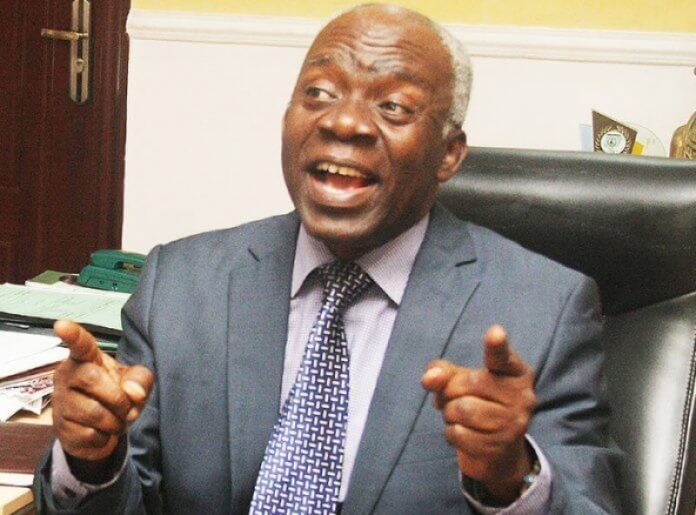Contrary to the federal government’s claims, the Nigeria Labour Congress (NLC) and its affiliates’ planned nationwide protests and strike scheduled for August 2 does not translate to contempt of court.
This was revealed by human rights campaigner Chief Femi Falana (SAN). The legal luminary was reacting to the Permanent Secretary of the Federal Ministry of Justice, who doubles as the Solicitor-General of the Federation, who averred that the labour movement intended to disobey the ex parte order of the National Industrial Court restraining it from the action.
However, Chief Falana, in a clarification letter directed to the Permanent Secretary, faulted the claim that the organised labour would go in contempt of court by embarking on nationwide strike or protest against present fuel hike occasioned by subsidy removal.
Dated July 28, 2023 and signed by Barr. Sam Ogala of Falana’s Chamber, the letter said the rights to peaceful protest has not been removed from the constitution.
The letter read, “In your reaction to the decision of Nigerian workers to participate in peaceful rallies to protest the worsening economic crisis in the country you were reported to have accused the leaders of the Nigeria Labour Congress of treating the order of the National Industrial Court with contempt.
“Contrary to your unwarranted allegation, the Nigeria Labour Congress does not intend to disobey the ex parte order of the National Industrial Court to the effect that “The defendants/Respondents are hereby restrained from embarking on the planned Industrial Action/or strike of any nature, pending the hearing and determination of the Motion on Notice dated 5th June 2023.
“You will agree us that the National Industrial Court or any other Court has not granted an order of interim, interlocutory or perpetual injunction restraining Nigerian workers from participating in peaceful rallies convened by the Nigeria Labour Congress.
“Since the constitutional right of Nigerian workers to protest peacefully cannot by any stretch of imagination be classified as an Industrial action or strike of any nature, you ought not have threatened our client with contempt of court.
“It is pertinent to draw your attention to the case of INSPECTOR-GENERAL OF POLICE vs ALL NIGERIA PEOPLES PARTY (2008) 12 WRN 65 where the Court upheld the fundamental right of Nigerians to protest without police permit. In the leading judgment of the Court, Justice Adekeye said as follows:
“The right to demonstrate and the right to protest on matters of public concern are rights which are in the public interest and that which individuals must possess, and which they should exercise without impediment as long as no wrongful act is done.
“If as speculated by law enforcement agents that breach of the peace would occur our criminal code has made adequate provisions for sanctions against breakdown of law and order so that the requirement of permit as a conditionality to holding meetings and rallies can no longer be justified in a democratic society.
“Finally, freedom of speech and freedom of assembly are part of democratic rights of every citizen of the republic; our legislature must guard these rights jealously as they are part of the foundation upon which the government itself rests”









